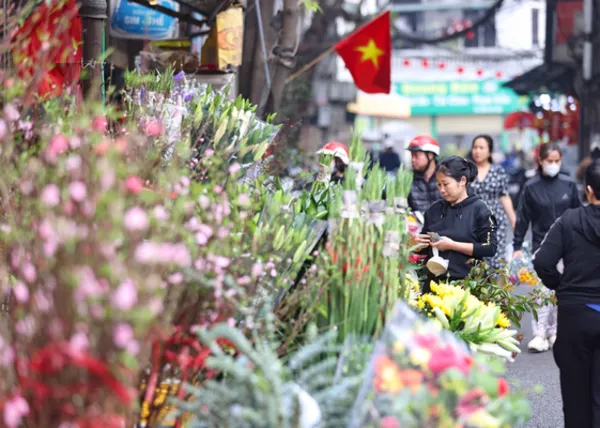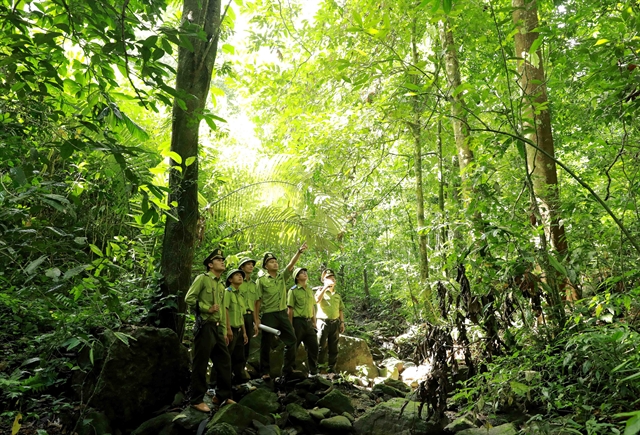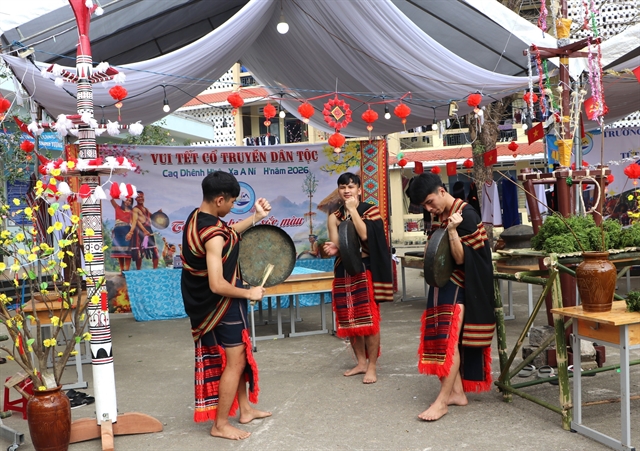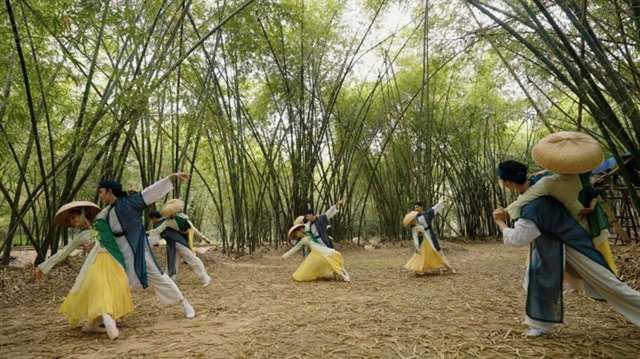.jfif) Opinion
Opinion

Professor Nguyễn Ngọc Lung, director general of the Research Institute for Sustainable Forest Management and Forest Certification, talks to Tuổi Trẻ (Youth) newspaper about the need to plant more young trees to keep the country clean and green.

|
| Phú Thọ Province's rangers inspect old-growth forest area in the Xuân Sơn National Park, Xuân Sơn District. — VNA/VNS Photo Vũ Sinh |
Professor Nguyễn Ngọc Lung, director general of the Research Institute for Sustainable Forest Management and Forest Certification, talks to Tuổi Trẻ (Youth) newspaper about the need to plant more young trees to keep the country clean and green.
Why has Việt Nam been launching campaigns to encourage people to plant new trees?
The Government has launched many campaigns encouraging people to move to new economic regions next to forests. Traditionally this land is very fertile and new settlers have harvested bumper crops.
However, several years ago, the land started to degrade due to various reasons, particularly the problem of land erosion. As a result, many families had to start claiming forest land for agricultural production. This has led to a big problem of barren land and bare hills.
In the past, Việt Nam had some 14 million hectares of forest, but now it has dropped to only 11 million hectares.
In 1992, the then Chairman of the Minister of Council signed Decision 327 to launch a campaign on forest plantation. As a result, some five or six years later, many barren hills became green again and people resumed agricultural production and forest plantation there. What's more important is the frequency of droughts has dropped considerably, as have flash floods.
Could you please explain a lit bit about the restoration of forests on the bare hills at that time?
Before 1992, many people said that only the State forest companies could plant trees. The Government at that time launched Programme 327 calling on all people to plant trees to cover the barren land and hills.
The Government granted land to anyone who wanted to plant trees on barren land or hills. As a result, millions of hectares of barren land was reforested and the people became owners of these pieces of land and were free to grow whatever trees or crops they wanted.
How do you think we can effectively realise the Prime Minister’s proposal to plant 1 billion trees over the next five years?
The first thing I should say is that forest plantation is a very effective way to improve the eco-system, particularly in the context of climate change and natural calamities.
Việt Nam's Prime Minister has announced the campaign to plant 1 billion trees over the next five years with various purposes, in some regions, certain species of trees would be cultivated to help protect the land from erosion, while in other areas, other species would be grown to help retain water to mitigate drought risks.
The Ministry of Natural Resources and Environment and local administrations should increase more the ratio for green trees, including new forestlands and urban green space, in their plans. Workplaces, schools and households could even make a plan to grow trees and increase green space in their area, depending on their land use intentions.
For forestlands grown to be commercially exploited, we need to replace the areas we cut down every year, that's regrowing. For the areas that are currently not covered by forests, like barren mountains or hills, we need a comprehensive survey to see which ones could be used to grow new forests.
In my opinion, we should not look at the number that is the proposed 1 billion trees, but instead look at the Government’s resolution and commitment.
Of course, they don't all have to be all big wooden trees, but we need to plant those suitable to the region in question and to the intended purposes. There should be as many people as possible to take part in these efforts, similar to campaigns to grow forests rehabilitate the eco-system years ago. — VNS




